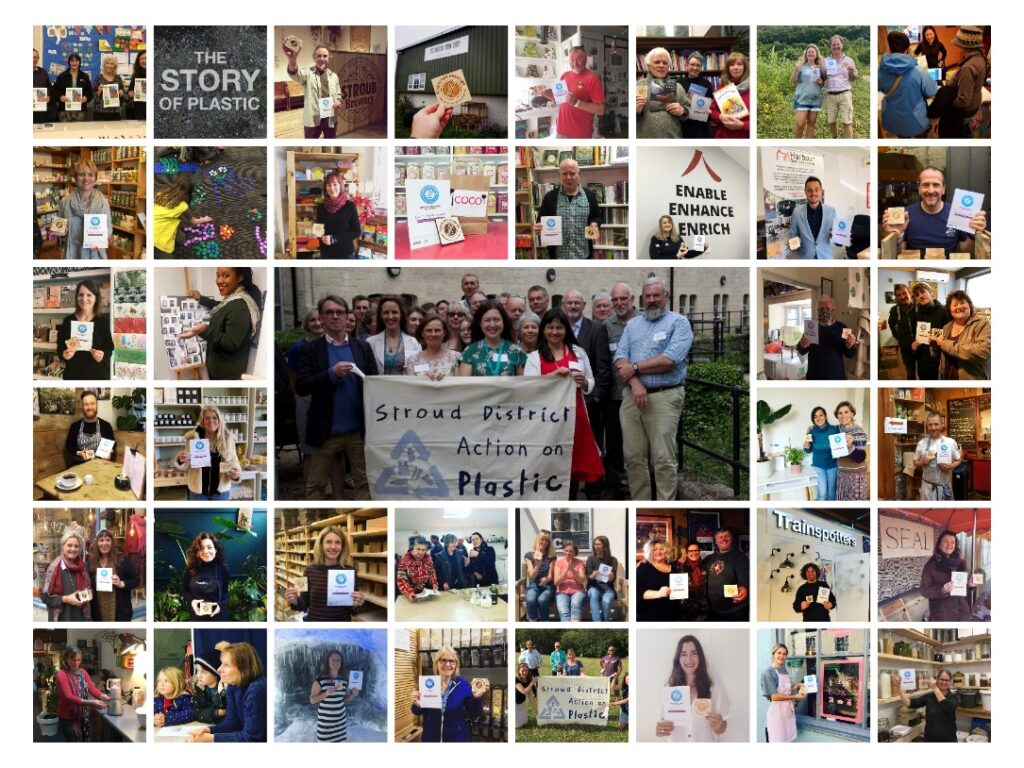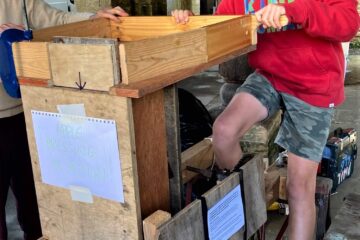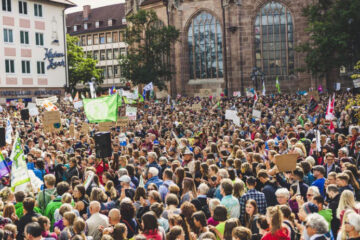
I’m Chloe – I live in Minchinhampton, I’m a member of the CAN, and one of my jobs is being the project coordinator for the Stroud-based community action group, Action on Plastic.
This involves running the group’s Facebook group, Instagram and Twitter accounts, and under normal circumstances I visit businesses, schools and community organisations across the district and wider Gloucestershire to share ideas for reducing plastic pollution.

Did you know
- that over 8300 million metric tonnes of plastic have been produced since the 1950s? And that only 9% of that vast quantity has ever been recycled?
- that the plastics production cycle is a major contributor to climate change?
- that our seas are projected to contain more plastic than fish by 2050?
These are some scary statistics, and we need dramatic change. One of the biggest problems is that much of our plastic is disposable – “single use”. So we use the item for moments, but it will persist in the environment for decades – centuries even – polluting the soil or water as it slowly degrades. Alternatively the plastic may end up being incinerated, in which case the resulting carbon dioxide and other greenhouse gases will contribute further to global warming. Recycling might seem like a solution, but it costs huge amounts of taxpayer money and has a big environmental footprint of its own.
So what can we do about single use plastics?
Governments clearly have a role to play, in introducing legislation and pushing businesses to change the way they make and package their goods. There has been some limited progress in recent years – you can help by signing relevant petitions and contacting your MP.
And we can all make a big difference by making small adjustments to how we buy things, look after our stuff, and go about our lives.
If you’re just starting out with this, you could start with these first simple changes – you’ll probably be surprised by how quickly your black bin and recycling waste reduce. It’s really satisfying to be able to make a difference.
- Over a week or two, keep an eye on what goes into your bin and recycling, to learn where your waste plastic is coming from
- Take your own cup for takeaway drinks – read here the continued safety of doing this in the pandemic – and your own container for takeaway food. Take your own bags when you visit the supermarket
- Buy loose goods (eg fruit, veg) wherever you can – greengrocers such as Marrows in Nailsworth or farm shops like Stancombe Beech Farm Shop or Jolly Nice will often have a wider selection.
- Visit your local “loose” or “zero waste” shop (Shiny Goodness in Nailsworth, for instance, or the Greenshop in Bisley) and see just how much you can refill eg household liquids, Woefuldane organic milk, oil and many dry goods or buy packaging free – here are some tips on visiting a zero waste store for the first time
- Try making your own if you can’t find something plastic free – crackers, cheese, even cosmetics and cleaning products – there are lots of brilliant recipes online
- Buying in bulk, if you have space to store it, will reduce the amount of packaging overall
In this short video, made with Hawkwood Centre for Future Thinking, I explain in more detail the changes you can make in all areas of your home:
Further reading: At Action on Plastic we’re working on a website with resources for reducing plastic across Gloucestershire – I’ll add it here when it’s launched. But in the meantime you might like to look at the excellent resources at Friends of the Earth and City to Sea on how to cut your own plastic footprint.
Featured image credit: Brian Yurasits, Unsplash


